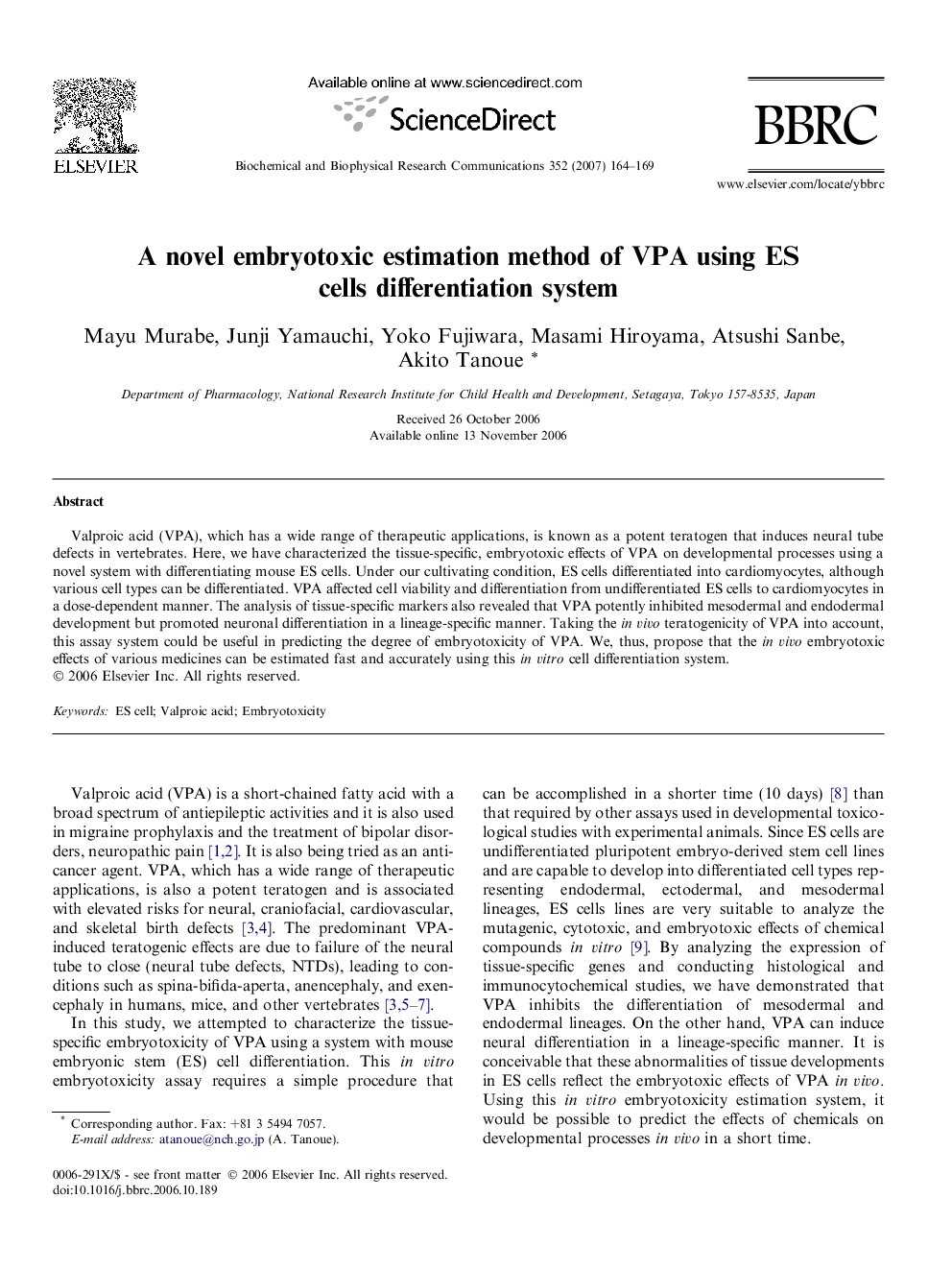| Article ID | Journal | Published Year | Pages | File Type |
|---|---|---|---|---|
| 1938414 | Biochemical and Biophysical Research Communications | 2007 | 6 Pages |
Valproic acid (VPA), which has a wide range of therapeutic applications, is known as a potent teratogen that induces neural tube defects in vertebrates. Here, we have characterized the tissue-specific, embryotoxic effects of VPA on developmental processes using a novel system with differentiating mouse ES cells. Under our cultivating condition, ES cells differentiated into cardiomyocytes, although various cell types can be differentiated. VPA affected cell viability and differentiation from undifferentiated ES cells to cardiomyocytes in a dose-dependent manner. The analysis of tissue-specific markers also revealed that VPA potently inhibited mesodermal and endodermal development but promoted neuronal differentiation in a lineage-specific manner. Taking the in vivo teratogenicity of VPA into account, this assay system could be useful in predicting the degree of embryotoxicity of VPA. We, thus, propose that the in vivo embryotoxic effects of various medicines can be estimated fast and accurately using this in vitro cell differentiation system.
